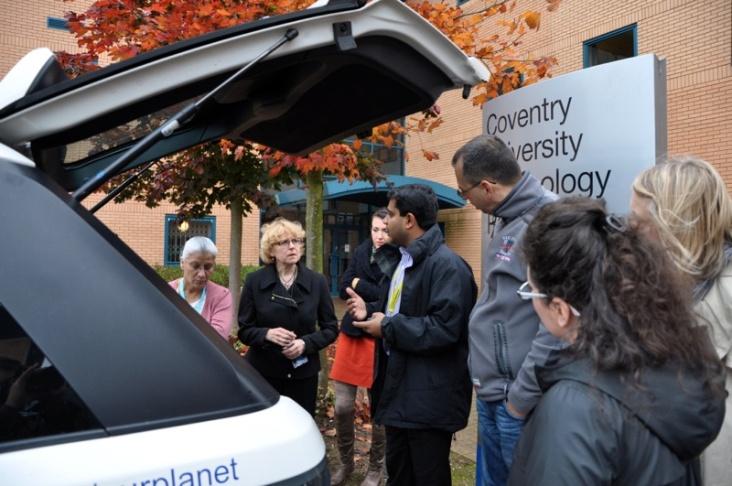City Labs: Supporting eco-innovation and entrepreneurship through best practice exchange and cooperation Mr David Wick a and Dr. Joan Lockyer a a
Institute of Applied Entrepreneurship, Coventry University
Abstract This paper explores how a series of City Labs, run under the auspices of the KnowEco project, a District + sub-project, aimed to support entrepreneurship and good practice transfer in eco-innovation in the construction and mobility sectors. The Know-Eco project was led by Coventry University Enterprises Limited and funded partly by the European Regional Development Fund (ERDF), in the framework of INTERREG IVC. The City Labs drew on a range of best practices demonstrated by partners across four regions: West Midlands (UK); Lower Silesia (Poland); SaxonyAnhalt (Germany), and Tuscany (Italy). The Know-Eco City Labs, as a form of Living Lab, brought together entrepreneurs and the innovators of products, services, technologies and approaches in mobility and construction with policymakers and those developing regional strategy. The aim of the Labs was not just to highlight examples of good practice and innovation, but to improve the effectiveness of regional strategy development and implementation. The City Labs enabled each partner to demonstrate their regional strengths and to discuss their strategy for smart specialisation. Over the series of City Labs it was possible to identify synergies and differences in regional approaches to common problems. This paper will describe the overall City Lab approach and rationale; it will highlight the benefits and limitations of the approach and provide a specific example of a City Lab by focusing on Coventry in the West Midlands of England as a case in point. Key words Eco-innovation, Entrepreneurship, Transferability, Best Practice; City Lab; Smart Specialisation 1 Introduction Before exploring how the City Lab complies with the various definitions of a Living Lab, we will provide some background on the approach adopted by the overall District + sub-project programme. In total there were six sub-projects, one of which Know-Eco, and six principal European partners (Dalgleish and Healy, 2013, p. 1). The aim of the projects was to support declining traditional industrial economies and, through innovation and knowledge creation/exploitation, encourage more
194














